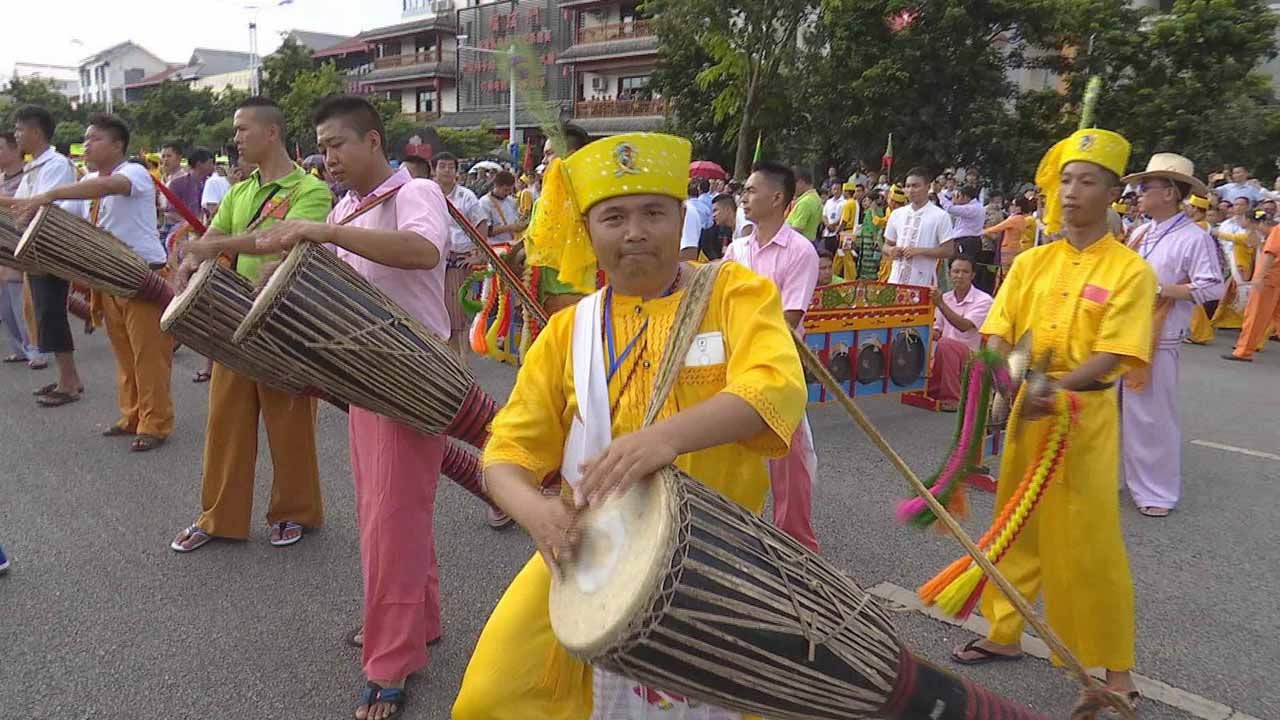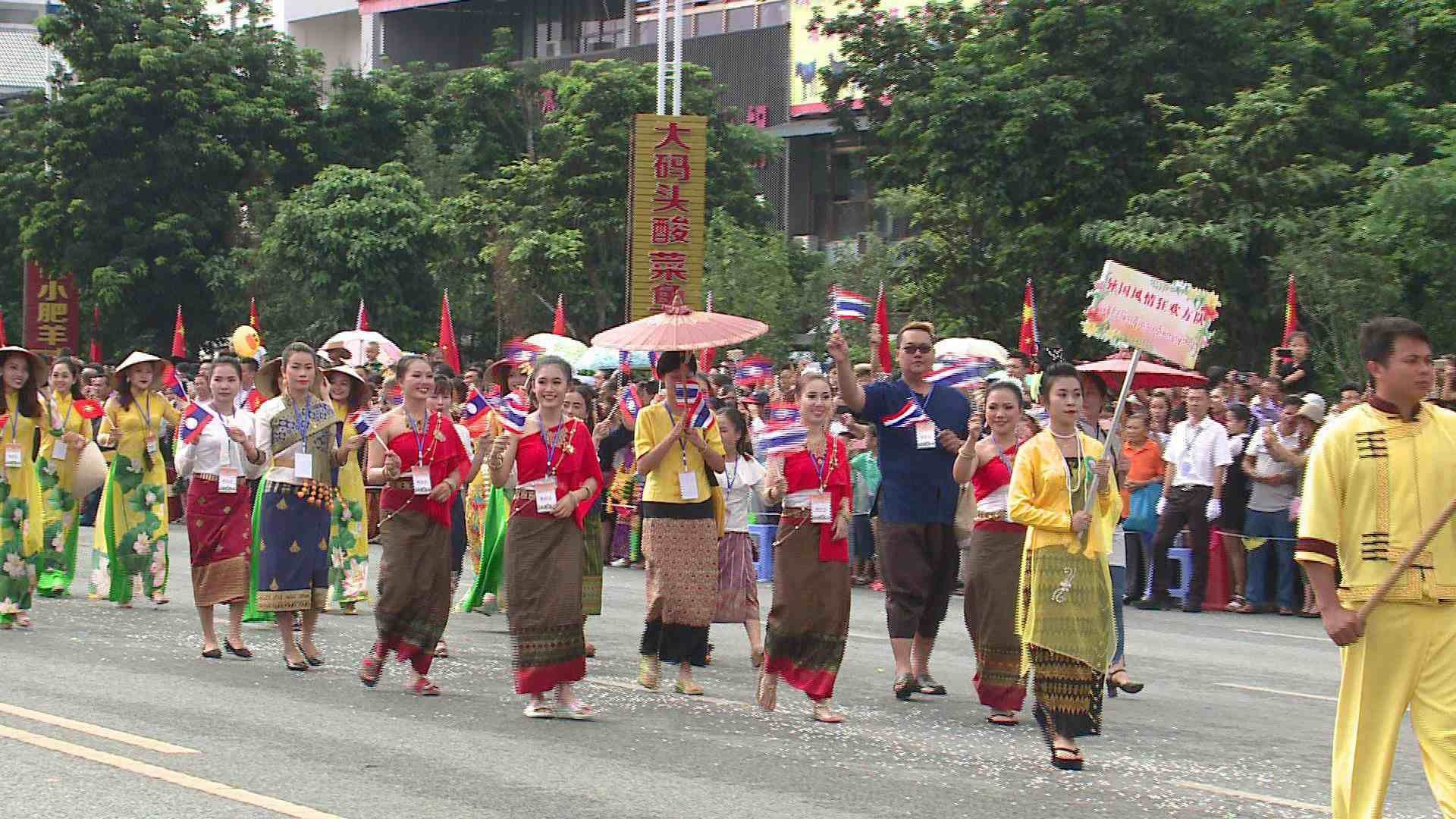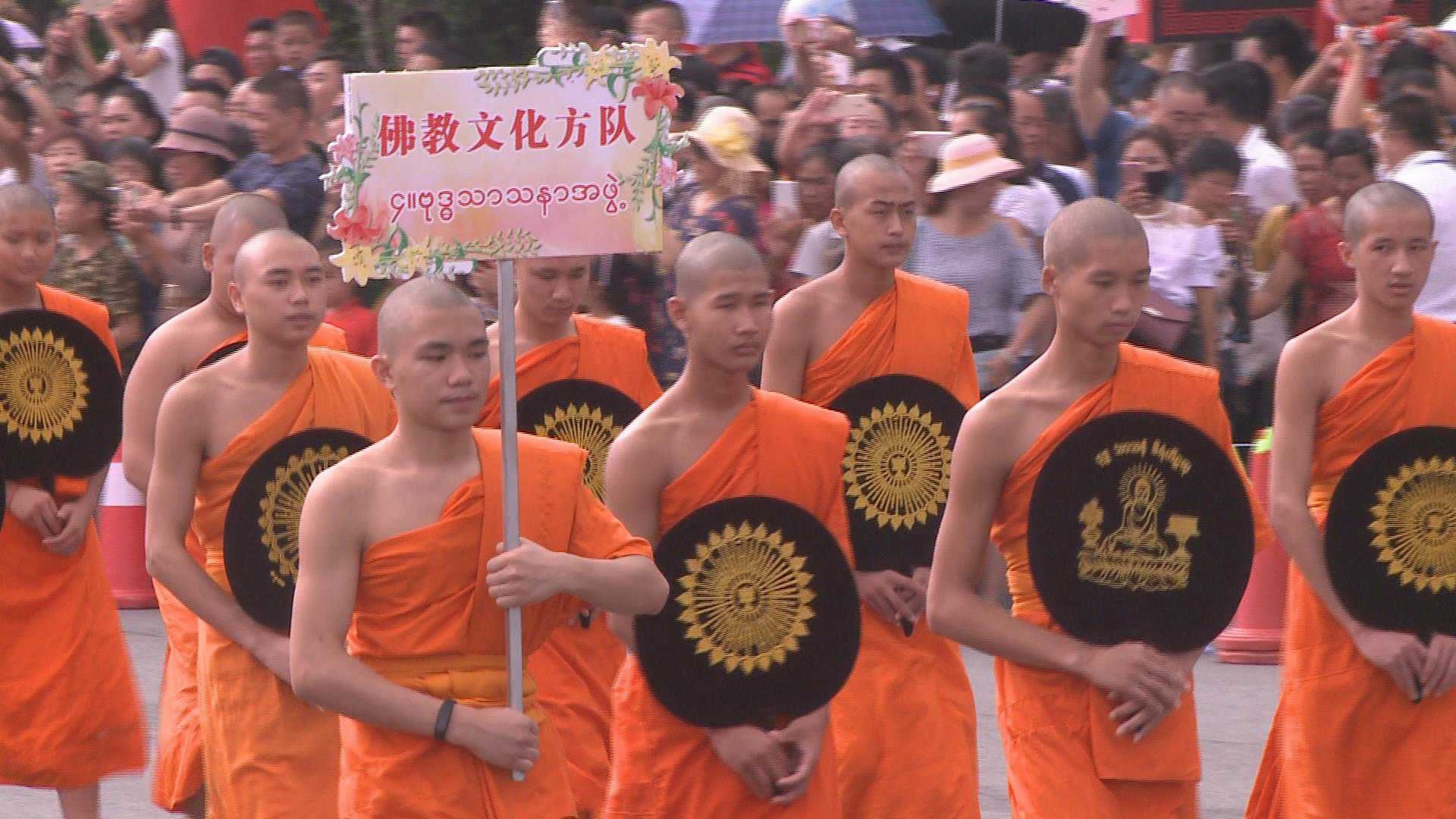
Culture
16:05, 03-Oct-2017
China, Myanmar hold carnival to promote friendship
By CGTN's Yang Jinghao, Li Yang

Ethnic minorities from the city of Ruili in southwest China's Yunnan Province and others from neighboring Myanmar celebrated their distinct customs and traditions at the annual Baobo Carnival on Monday.
A transliterated word from Burmese, "Baobo" means brother, and the event aimed to promote friendship between people from the two countries.
A county-level city bordering Myanmar, Ruili is known for its ethnic diversity, with inhabitants of Dai, Jingpo, De'ang, Lisu and Achang ethnic minorities.

A festooned oxcart showcases its features. / CGTN Photo
A festooned oxcart showcases its features. / CGTN Photo
The "Peacock Dance" by Dai people, "Munao Zongge" by Jingpo people and the "Elephant-Foot Dance," among other distinct art forms, were all presented at the carnival.
"We performed the 'Gaguang Dance' today. It's a kind of dance from our Dai ethnic group. We feel so happy to participate in this festival," performer Yan Bao told CGTN.
A parade of festooned oxcarts was still a highlight this year. Once an important means of transportation for the ethnic minorities of both countries, the oxcart has gradually become outmoded. However, the oxcart beauties and special ornaments on the carts were still an attraction to people.
"I am from Myanmar's Kayan ethnic group and I work in a village on the border. I'm an oxcart beauty today and I feel happy and honored," said a performer.

Performers from Thailand participate in the annual carnival for the first time. / CGTN Photo
Performers from Thailand participate in the annual carnival for the first time. / CGTN Photo
Besides ethnic minorities from China and Myanmar, performers from Thailand, Laos and Vietnam were also invited to the carnival this year, adding to the diversity of the annual event.
"I feel very happy and excited to participate in this event. I think it's my honor to represent Vietnam to introduce Vietnam's dance to Chinese people," Vietnamese performer Pham Thu Ha told CGTN.
Ruili is not only home to multiple ethnic minorities, but is also a great place for neighboring Burmese to explore opportunities. Many Burmese people are working, doing business and even going to school here. In recent years, local authorities of Ruili and of neighboring Burmese cities have been working to facilitate the exchanges between the two sides. With preferential policies, people living on both sides of the border can easily cross the border for business opportunities.

Buddhist representatives participate in the carnival. Most of the ethnic minorities in Ruili believe in Buddhism. / CGTN Photo
Buddhist representatives participate in the carnival. Most of the ethnic minorities in Ruili believe in Buddhism. / CGTN Photo
Daw Moe Thu Tint, district chairwoman of the women's affairs federation in Muse, said that Muse and Ruili have long been good neighbors and she hopes the event will continue to play an active role in promoting mutual friendship. Meanwhile, many foreign performers said they are expecting to come back next year.
2493km

SITEMAP
Copyright © 2018 CGTN. Beijing ICP prepared NO.16065310-3
Copyright © 2018 CGTN. Beijing ICP prepared NO.16065310-3